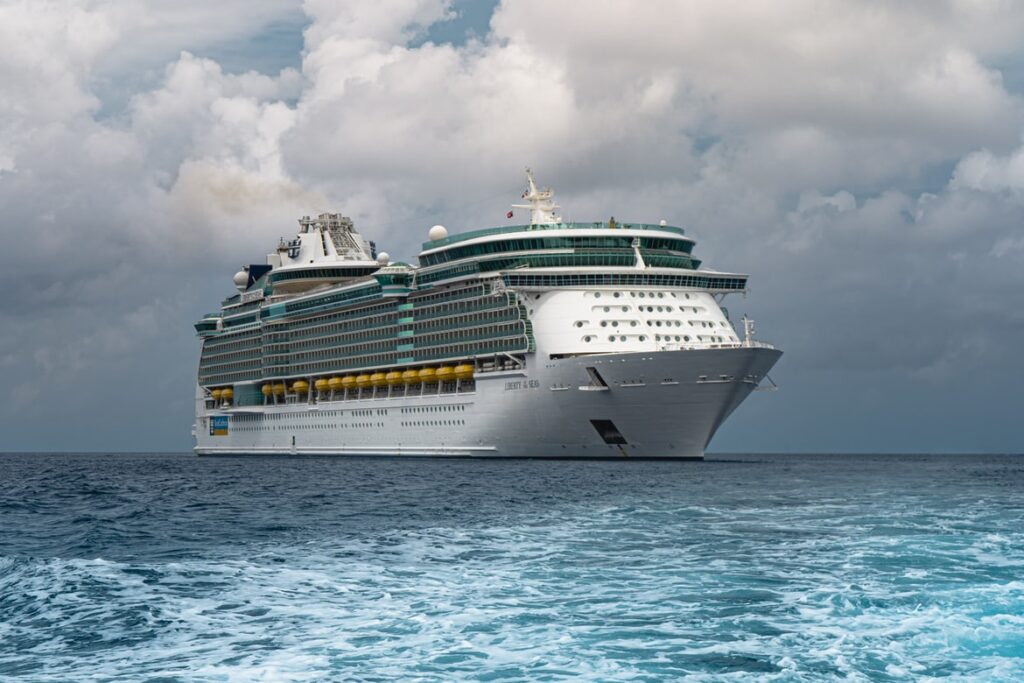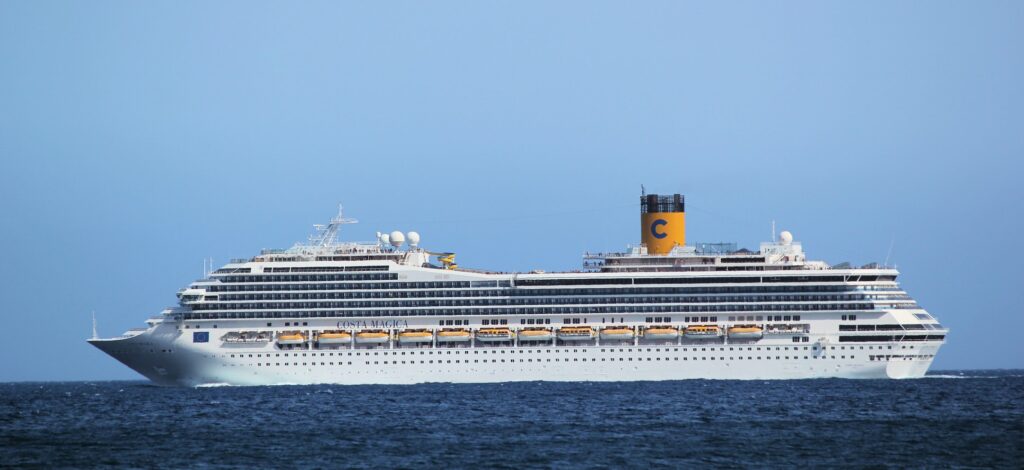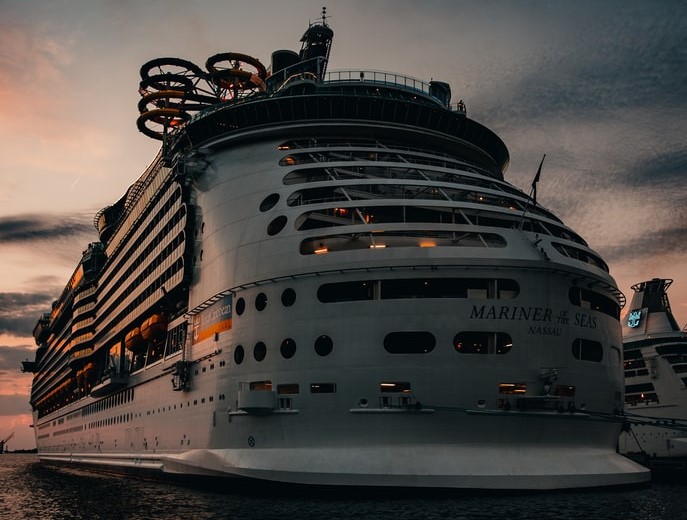Award-winning buffets, unlimited cocktails, designer pools, and Broadway shows – modern cruise ships have it all. Like glittering palaces on the high seas, they offer endless entertainment en route from one exotic paradise to the next. But some passengers reach their final destination halfway through the journey, beneath by the dark waters of the ocean, never to be seen again. Every year, some 20 people disappear from cruise ships, often under strange circumstances. Some fall overboard by accident, others commit suicide, while an unfortunate few are victims of violent crimes. One in every three cases remains unsolved.
In the summer of 2004, 40-year-old Merrian Carver vanished without a trace from a Royal Caribbean cruise. Unable to each her for several days, her father Kendall found out his daughter was booked on a cruise to Alaska and phoned the line. Royal Caribbean confirmed that Merrian had boarded the ship but had not used her cabin after the second night. While she had been duly reported missing by the steward, the cruise line did nothing, claiming it was not unusual for passengers to sleep in someone else’s cabin, or to disembark at one of the stopovers to the final destination.

Two years later, Dublin schoolgirl Lynsey O’Brien was served alcoholic drinks on the Costa Magica, despite being underage. When she went missing for nearly two hours, her sister Kelly found her intoxicated in one of the bars and took her back to the cabin, where their parents put Lynsey to bed. Shortly after, Kelly’s scream tore through the night, the girl rushing into the parents’ bedroom in horrified frenzy. Lynsey had walked out to the balcony, leaned over the railing to vomit, and fallen overboard. The family notified the crew immediately, but her body was never found.

More recently, in August 2021, German millionaire Kai Wünsche (81) was reported missing from the MS Europa. Wünsche was on his way from Hamburg to Bordeaux, just passing by the island of Texel, when he seems to have fallen overboard. The Netherlands Coastguard assisted the search with a helicopter and several lifeboats, but very little could be done in the rough seas. A week later, a body washed up on the beach at Terschelling and was identified as Wünsche. The police reported no evidence indicating a crime.

While circumstances are endless, many cases have one thing in common – the reluctance of the cruise lines to assist families in investigating the disappearance of their loved ones. The lack of cooperation has been evident in the companies’ slow rescue attempts, refusal to answer questions about the cases, suspiciously missing video footage, as well as numerous cover-up stories in the media. The last thing cruise lines want is a dark stain on their billion-dollar feel-good image.
Frustrated with how his daughter’s case was brushed off by the cruise line, Kendall Carver founded International Cruise Victims, an organization fighting for safety improvements and accountability. Thanks to Carver’s efforts, the US Congress passed the Cruise Vessel Security and Safety Act (CVSSA) in 2010. The act covers passenger-vessel security and safety requirements, essential staff training, and strict procedures in cases of accidents or crime on board. Calling for transparency, the measures include obligatory recording and reporting of the crime by the cruise line, as well as financial fines for not reporting a missing passenger within four hours. Finally, the CVSSA requires cruise ships bound for US ports to have an automatic person-overboard system, with sensors and cameras able to detect falling bodies and send an immediate signal to the bridge.

While most ships already have security cameras installed, these often have dead angles and are used for recording, not for live signaling. In 2017, MSC Cruises announced the introduction of a video-based emergency system on its new ships – a state-of-the-art system, designed to detect man-over-board emergencies faster and more reliably. Many other lines, however, shy away from such systems, some say not only for the cost, but also because automatically recorded evidence cannot be covered up.
The sooner someone is reported missing, the smaller the search area, which is especially valuable at night. Unfortunately for all of us passionate cruise-lovers, even on modern ships the disappearance of a passenger could be noticed hours later, and as the sea is often cold and rough, survival chances after prolonged exposure are not optimistic. However, if the incident is observed and reported directly, the ship could change course in time and return to search the surface where the person was seen falling.
Crimes and tragic accidents do happen and no security system, no matter how modern, can stop a passenger from jumping overboard if they have decided to do so. This, however, does not absolve cruise lines of their responsibility for the safety of all those passengers who come to have fun, get that well-deserved vacation, or travel the world as they have always dreamed.
The Shipyard

